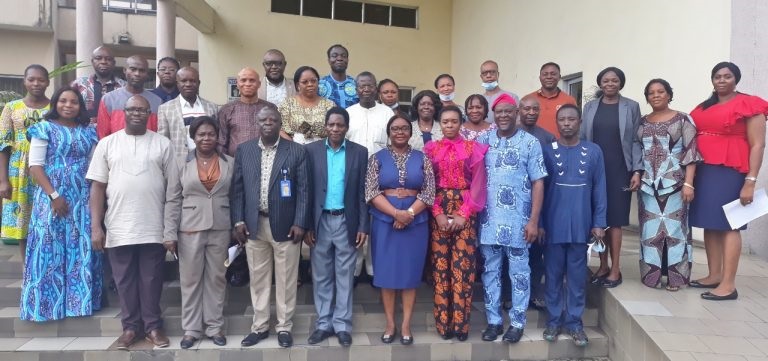Some scientists in the University of Port Harcourt (UNIPORT) in Rivers State on Wednesday, June 30, 2021 began a 12-month research project to tackle rising food shortage in Nigeria due to climate change.

The Lead researcher, Dr Clara Ifeanyi-Obi, said in Port Harcourt that the project aims at mainstreaming gender into climate adaptation efforts and addressing issues that hinder climate change adaptation in agriculture.
Ifeanyi-Obi said the title of the research project was “Gender-responsive Climate Change Adaptation Initiatives in Nigerian Agriculture Project.”
The don disclosed that the research would last for 12 months and would be carried out in all the 17 states in the South-East, South-South and South-West geo-political regions.
“This project is targeted to mainstream gender into climate adaptation efforts and address facts that limit people from adapting to climate change in their agricultural production,” she said.
The research is sponsored by the Canadian Government through the AIMS NEI Fellowship Programme for Women in Climate Change Science.
The lecturer in the Department of Agricultural Economics and Extension, UNIPORT, said that climate change had negatively impacted agricultural produce in the country.
“This negative impact is helped by the fact that women, who make up the largest population in the nation’s agric. sector, do not have knowledge and skill to adapt to climate change.
“Most of the climate change adaptation effort made by both the Federal Government and private agencies seems to neglect the place of gender, especially the women group.
According to her, women are excluded from adaptation efforts and strategies of both government and private agencies, despite having more numbers in the agricultural sector than men.
She said that the exclusion of women from past projects on climate change had affected food security in the country.
“The project will look at three areas, including the reduction of vulnerability of climate change by addressing the drivers of vulnerability to climate change.
“It will also build the capacity of people and communities, particularly those who are affected by the effect of climate change.
“In addition, it will contribute to implementing the different adaptation decisions and policies of the Federal Government as well as achieve a climate-smart agriculture agenda.
“It is very important that gender needs are addressed, if the country wants the climate adaptation efforts to be effective and successful,” she added.
The Director, Centre for Research Management, UNIPORT, Prof. Samuel Arokoyu, said it was no longer disputable that the nation’s climate was changing for the worse.
He said the changing climate had caused untold damage to the nation’s ecosystem and affected the country’s food sufficiency.
“The global economy is going down and even Nigerian government is struggling to fulfil its obligations and not talk of the citizens.
“So, scientists and all stakeholders must come together to begin to brainstorm on how change can be affected, so that we will still be able to feed ourselves.
On his part, the Director, Centre for Disaster Risk Management and Development Studies, UNIPORT, Prof. Andrew Obafemi, said the research was timely due to the global economic downturn.
According to him, climate change also provides scientists in the country the opportunity to come up with innovative solutions in a changing world.
“To this end, this research will provide evidence-based data for policy and decision to enhance food productivity in Nigeria by building the capacity of our women,” he said.
By Desmond Ejibas
